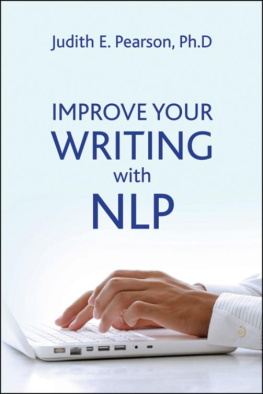BETTER TO HAVE LOVED
Contents
The Estate of Judith Merril, and Emily Pohl-Weary, 2002
First published in Canada in 2002 by
Between the Lines
720 Bathhurst Street, Suite 404
Toronto, Ontario
M5S 2R4
ALL RIGHTS RESERVED. No part of this publication may be photocopied, reproduced, stored in a retrieval system, or transmitted in any form or by any means, electronic, mechanical, recording, or otherwise, without else written permission of Between the Lines, or (for photocopying in Canada only) CAN-COPY, 1 Yonge Street, Suite 1900, Toronto, Ontario, M5E 1E5.
Every reasonable effort has been made to identify copyright holders. Between the Lines would be pleased to have any errors or omissions brought to its attention.
Earlier versions of chapter 8 were published in the 50th anniversary issue of Fantasy and Science Fiction magazine (October/November 1999), and the New York Review of Science Fiction (issue 59. July 1993).
Part of chapter 4 was published in the anthology Women of Other Worlds, edged by Helen Merrick and Tess Williams, University of Western Austalia Press, 1999.
NATIONAL LIBRARY OF CANADA CATALOGUING IN PUBLICATION DATA
Merril, Judith, 1923-1997.
Better to have loved the life of Judith Merril
Includes bibliographical references and index.
ISBN 1-896357-57-I
I. Merril, Judith, 1923 -19 97 2. Authors, Canadian (English) 20th century Biography. 3. Science fiction, Canadian (English). I. Poll-Weary, Emily. IL. Title.
Between the Lines gratefully acknowledges assistance for its publishing activities from the Canada Council for the Arts, the Ontario Arts Council, and the Government of Canada through the Book Publishing Industry Development Program.
For the extended family and the universe.
Acknowledgements
THANKS TO PAUL EPRILE, ROBERT CLARKE, and everyone else at Between the Lines; they have been knowledgeable, professional, and wonderful to work with. My agent, David Johnston of Livingston Cooke, had remarkable faith in the scraps of a manuscript I originally presented to him. The Ontario Arts Council, Canada Council, and Toronto Arts Council all provided financial support either to me or to Judy. Lorraine Filyer at the Ontario Arts Council has been particularly supportive. Thanks to the Hoity-Toity Writers' Group for editing an early version of the manuscript and ongoing support, especially: Jim Munroe, Paola Poletto, Jessica Westhead, Paul Hong, and Jeff Chapman. Stuart Ross, Allen Weiss, and Ronald Weihs also read versions of the manuscript. For encouragement along the way, thanks to Emily Levitt, Bridget Missabie, Nicole Tremblay, Mary Anne Lacey, Malcolm Rogge, Tanya Battersby, John Hodgins, Gregory Guy, Hal Niedzviecki, and others. For research, support, help along the way, and ruthlessly picking out errors, thanks to the following members of the science fiction community: Virginia Kidd, Vaughne Lee Hansen, Justine Larbalestier, FEM-SF e-mail list, Barry Wellman, Katie MacLean, Gordon Van Gelder, Nalo Hopkinson, Bryan Cholfin, Elizabeth Cummins, David Hartwell, Lorna Toolis, and others.
Judy owes a lot of thanks to people who kept her writing in the last years of her life, including: Valerie Alia, Maureen Gaulthier, Jim Smith, Judith Sandiford and Ron Weihs, Lorna Toolis, Annette Mocek, Mary Cannings, Sharon Dyer, and all the folks at PAL, and so many others. My family has given me an inexhaustible supply of love during this lengthy and often emotionally difficult process: Ann Pohl, Walter Weary, Juan Miranda, Maureen Lynn, Julia and Daniel Pohl-Miranda, and Tobias Pohl-Weary. Love also to the people farther away.
And, of course, all my love to Jesse, for being there every day and convincing me to believe in myself.
Emily Pohl-Weary
Chronology:
Important Events in Judith Merril's Life
1923
Judith Josephine Grossman is born on January 21 in Boston to parents Ethel and Samuel (Shlomo) Grossman.
1929
The Great Depression begins; lasts to the end of the 1930s. Her father Shlomo Grossman commits suicide.
1933
Judith, an avid young Zionist, starts sixth grade at the Girls' Latin School.
FALL 1936
Moves with her mother, Ethel, to the Bronx, New York City, when Ethel gets a job at the Bronx House. Starts high school at Morrows High.
1930-38
Goes to Zionist summer camp, reads the Communist Manifesto.
1937-39
Forms an inseparable trio with her best friends Saul and Willy at Morrows High School. Graduates from high school in June 1939.
1939
The Soviet Union makes a pact with the Nazis. Zionism begins to lose its appeal for her.
1940
Meets first husband Dan Zissman at a Trotskyist Fourth of July picnic. They marry on October 26.
1940-41
Judith and Dan live with his parents in Philadelphia. She has several different jobs, ranging from waitress to curtain examiner.
1942-43
Gets pregnant with first daughter, Merril, who is born in December 1942. Dan is drafted.
1943-44
A camp-following Navy wife and mother, Judith moves seven times to army bases in Chicago, New York, and San Francisco, among others. Merril starts at a nursery school for very young children.
1944
Dan's Trotskyist background catches up with him and the army sends him overseas, into action.
1945
In New York City, Judith meets Johnny Michel, Bob "Doc" Lowndes, and literary agent and editor Virginia Kidd (then Emden), among other literary figures. Shares a railroad flat with Kidd and her daughter Karen, who is the same age as Merril. Judith gets a job as a researcher/ghostwriter.
1945-46
Becomes involved as president of Merril's school Parent-Teacher Association. Fights for broad access to public nursery schools. Moves with Dan into an unheated apartment on 19th Street. There is increasing trouble in Judith and Dan's marriage, and they separate. She becomes friends with Jay Stanton and Ted Sturgeon. Takes Merril's name as her pen name.
1945-46
Judith is in agent Scott Meredith's stable. She supports herself as a single mother by writing, under pen names, nineteen sports-related short stories for pulp magazines.
1946
Meets Frederik Pohl when he returns from overseas. He moves into her apartment.
1948
In February, divorce from Dan is finalized. In May, Judith's first science fiction story, "That Only a Mother," is published in Astounding Science Fiction magazine. She becomes engaged to Fred Pohl, and they marry on November 25.
1949
Writes her first novel, Shadow on the Hearth.
1950
The "McCarthy Era" begins in the United States, including widespread sensationalist investigations into suspected U.S. Communists, blacklisting, and political persecution. Judith's first novel, Shadow onthe Hearth, is published, as well as her first anthology, Shot in the Dark. Her second daughter, Ann, is born in September, and she writes her second novel, Outpost Mars (originally "Mars Child"), with Cyril Kornbluth, under the pen name Cyril Judd.
1951-52
Her novel Gunner Cade (with C.M. Kornbluth, as "Cyril Judd") is serialized in Astounding ScienceFiction, and then published by Simon and Schuster. She separates from Fred Pohl.
1953
Lives with writer Walter Miller for six months. Divorce from Fred Pohl is finalized.
1954
The Communist Party in the United States is virtually outlawed. Motorola TV Theatre(ABC) produces a television dramatization of Shadow on the Hearth under the title "Atomic Attack."



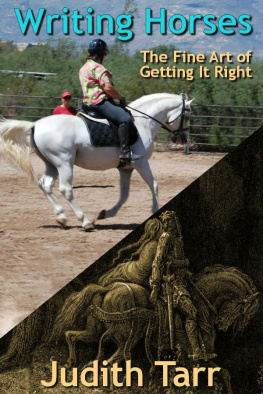
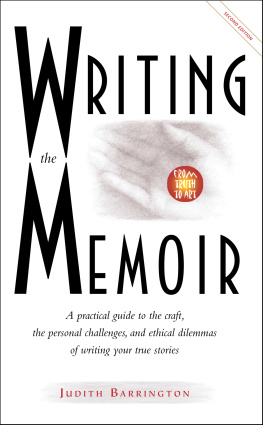
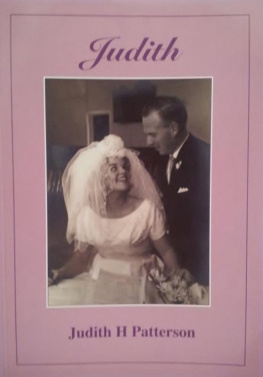
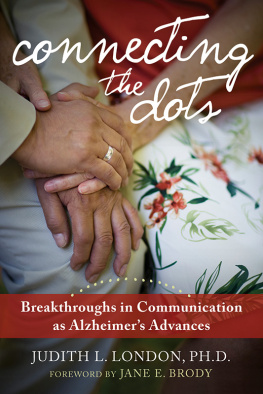
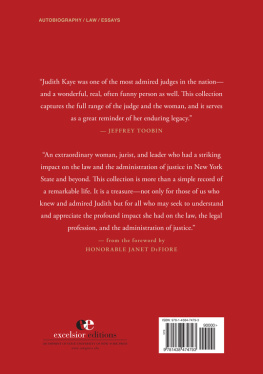
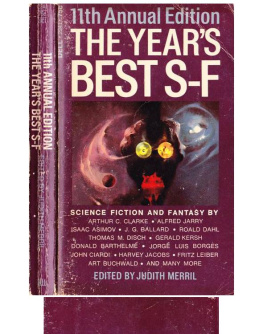
![Merril - The Years Greatest Science Fiction & Fantasy 1: [Anthology]](/uploads/posts/book/220111/thumbs/merril-the-year-s-greatest-science-fiction.jpg)
